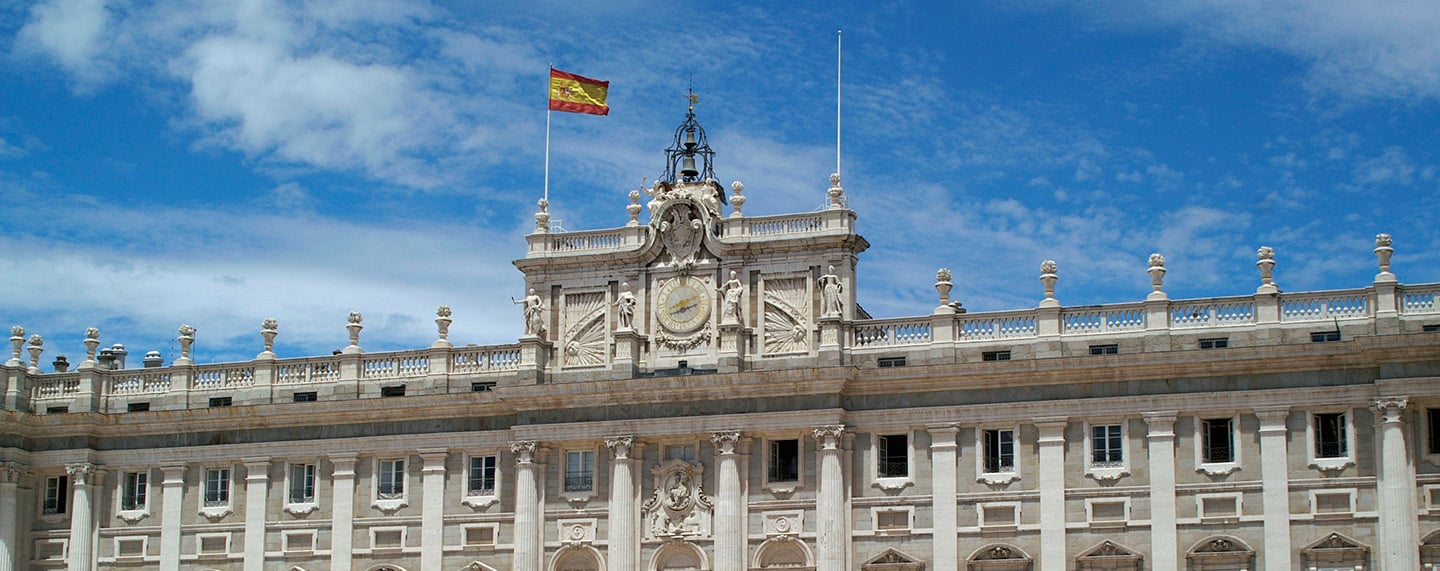The first 10 years of King Felipe VI, following the abdication of his father, King Juan Carlos I, who fell into disgrace as a result of alleged financial wrongdoings and personal scandals, has seen a marked improvement in the popularity of the monarch. The king is notably more popular than his father and also any of the country’s leading politicians, with an approval rating of 6.6 out of 10, according to IMPO Insights, compared with 2.9 for Juan Carlos, who has been in self-imposed exile in Abu Dhabi since August 2020.
Felipe inherited a toxic situation in 2014 in a country whose history is characterised by institutional instability. There have been nine constitutions since 1800, four civil wars, 13 military coups and two restorations of the Bourbon monarchy, first, in 1874, after the short-lived First Republic, and then in 1975 after the death of General Francisco Franco and the end of his 36-year dictatorial regime that came after a three-year civil war that overthrew the Second Republic. Not only did Juan Carlos bring the monarchy into disrepute, but so did the wider royal family. In 2018 his son-in-law, Iñaki Urdangarín, was given a sentence of five years and 10 months for tax fraud, embezzlement of public funds and influence peddling.
In a country so sharply polarised and politically fragmented as Spain the monarchy, despite being a hereditary institution, serves the country better than a republic.
Felipe quickly moved to clean up the monarchy’s image by subjecting the royal palace’s accounts to external audits and making the results public. Other steps included a new code of good conduct and a ban on immediate royal family members working in the public sector. The difficult relation between father and son reached a critical point in March 2020 when Felipe renounced any inheritance from his father and cut off his annual grant of almost €200,000. This followed media reports that Juan Carlos had received US$100 million from the Saudi royal family via an offshore account. Juan Carlos’s departure to Abu Dhabi was followed by two voluntary tax settlements amounting to more than €5 million.
Unlike his father, who was not guaranteed the throne until, aged 31, the dictator Francisco Franco named him his successor in 1969 as head of state, Felipe always knew that one day he would be king. His upbringing and preparation for the job were very different from those of Juan Carlos, whose own father (Felipe’s grandfather), Don Juan (1913-93) lived most of his life in exile, after his father, Alfonso XIII (1886-1941), left Spain in 1931 shortly before the establishment of the Second Republic. Whereas Juan Carlos was initially nicknamed Juan Carlos el Breve (‘Juan Carlos the Brief’) by the communists, Felipe was called El Preparado (‘The Prepared One’).
Felipe has become visibly more secure and confident, and in a much more polarised, fragmented and testing political scene than prevailed during his father’s reign. A year after he ascended the throne, the 2015 general election broke the essentially two-party mould of political life. The combined vote share of the Popular Party (PP) and the Socialists (PSOE) dropped to 50.7% (from 73.4% in 2011), as a result of the entry into parliament of the would-be centrist Ciudadanos and the hard-left Podemos. In 2017 the Catalan government held an illegal referendum on secession from Spain, which Felipe faced down in a public broadcast defending the constitution. The independence movement, which has not gone away, is a much greater threat to the state than the 1981 military coup that Juan Carlos confronted. Next, in 2019, the hard-right VOX entered parliament. There have been five general elections in Felipe’s reign so far, compared with 10 in the first 37 years following the 1978 democratic constitution. It has been a steep learning curve for him.
As the ‘motor’ of the transition to democracy, the initially hugely popular Juan Carlos legitimised the restoration of the monarchy but at the cost of an excess of what became known as Juancarlismo to the detriment of a greater institutionalisation of the monarchy. As a result, when his charismatic leadership began to be questioned, the institution of the monarchy suffered more than might have been the case. The more reserved Felipe, aided by Queen Letizia (not of blue blood like Queen Sofía, the wife of Juan Carlos) has succeeded in institutionalising the monarchy to a greater extent, and is already preparing his 18-year-old daughter, Princess Leonor, the heir to the throne.
The main criticism of the monarchy comes from republican supporters, but not exclusively. Polling shows that around 40% of Spaniards favour a republic. Yet some in VOX and the new hard-right party Se Acabó La Fiesta (SALF, ‘The Party’s Over’), which emerged from nowhere to win three seats in the European Parliament in June’s elections, have raised their voices against Felipe sanctioning the contentious amnesty law approved by parliament (as he has to), which benefited around 400 Catalan nationalists facing legal action since 2011.
It is striking that many of the most prosperous and democratic countries in the world are parliamentary monarchies. Of the 24 countries classified as ‘full democracies’ in the 2023 democracy index of the Economist Intelligence Unit (EIU), eight, including Spain (albeit only just), are parliamentary monarchies (see Figure 1).
Figure 1. Parliamentary monarchies (marked in red) ranked as ‘full democracies’ in The Economist Intelligence Unit’s Democracy Index, 2023 (1)
| Rank (2) | Overall score | Electoral process & pluralism | Functioning of government | Political participation | Political culture | Civil liberties | |
|---|---|---|---|---|---|---|---|
| Full democracies | |||||||
| Norway | 1 | 9.81 | 10.00 | 9.64 | 10.00 | 10.00 | 9.41 |
| New Zealand | 2 | 9.61 | 10.00 | 9.29 | 10.00 | 8.75 | 10.00 |
| Iceland | 3 | 9.45 | 10.00 | 9.29 | 8.89 | 9.38 | 9.71 |
| Sweden | 4 | 9.39 | 9.58 | 9.64 | 8.33 | 10.00 | 9.41 |
| Finland | 5 | 9.30 | 10.00 | 9.64 | 7.78 | 9.38 | 9.71 |
| Denmark | 6 | 9.26 | 10.00 | 9.29 | 8.33 | 9.38 | 9.41 |
| Ireland | 7 | 9.19 | 10.00 | 8.21 | 8.33 | 10.00 | 9.41 |
| Switzerland | 8 | 9.14 | 9.58 | 9.29 | 8.33 | 9.38 | 9.12 |
| Netherlands | 9 | 9.00 | 9.58 | 8.93 | 8.33 | 8.75 | 9.41 |
| Taiwan | 10 | 8.92 | 10.00 | 9.29 | 7.78 | 8.13 | 9.41 |
| Luxembourg | 11 | 8.81 | 10.00 | 8.93 | 6.67 | 8.75 | 9.71 |
| Germany | 12 | 8.80 | 9.58 | 8.57 | 8.33 | 8.13 | 9.41 |
| Canada | 13 | 8.69 | 10.00 | 8.21 | 8.89 | 7.50 | 8.82 |
| Australia | 14= | 8.66 | 10.00 | 8.57 | 7.22 | 7.50 | 10.00 |
| Uruguay | 14= | 8.66 | 10.00 | 8.93 | 7.78 | 6.88 | 9.71 |
| Japan | 16 | 8.40 | 9.17 | 8.93 | 6.67 | 8.13 | 9.12 |
| Costa Rica | 17 | 8.29 | 9.58 | 7.50 | 7.78 | 6.88 | 9.71 |
| Austria | 18= | 8.28 | 9.58 | 7.50 | 8.89 | 6.88 | 8.53 |
| UK | 18= | 8.28 | 9.58 | 7.50 | 8.33 | 6.88 | 9.12 |
| Greece | 20= | 8.14 | 10.00 | 7.14 | 7.22 | 7.50 | 8.82 |
| Mauritius | 20= | 8.14 | 9.17 | 7.86 | 6.11 | 8.75 | 8.82 |
| South Korea | 22 | 8.09 | 9.58 | 8.57 | 7.22 | 6.25 | 8.82 |
| France | 23= | 8.07 | 9.58 | 7.86 | 7.78 | 6.88 | 8.24 |
| Spain | 23= | 8.07 | 9.58 | 7.50 | 7.22 | 7.50 | 8.53 |
Parliamentary monarchies also score well in the UN Human Development Index (see Figure 2).
Figure 2. Parliamentary monarchies in the 2023 UN Human Development Index
| Ranking (1) | Human Development Index value 2022 | Life expectancy at birth 2022 (years) | Mean years of schooling (2022) | GNI per capita (2017 PPP US$) 2022 |
|---|---|---|---|---|
| 2. Norway | 0.966 | 83.4 | 13.1 | 69,190 |
| 5.= Denmark | 0.952 | 81.9 | 13.0 | 62,019 |
| 5.= Sweden | 0.952 | 83.5 | 12.7 | 59,996 |
| 10.Netherlands | 0.946 | 82.5 | 12.6 | 57,278 |
| 12. Belgium | 0.942 | 82.3 | 12.5 | 53,644 |
| 15. UK | 0.940 | 80.5 | 12.3 | 46,264 |
| 20.Luxembourg | 0.927 | 82.6 | 13.0 | 78,554 |
| 24. Japan | 0.920 | 84.8 | 12.7 | 43,644 |
| 27. Spain | 0.911 | 83.9 | 10.6 | 40,043 |
In a country so sharply polarised and politically fragmented as Spain the monarchy, despite being a hereditary institution, serves the country better than a republic. It stands above the fray and acts as a symbol of unity by not being identified with any political party in the way that an elected head of state probably would be. A change in the form of the state will not resolve the country’s fundamental problems and could, history suggests, even exacerbate them.



